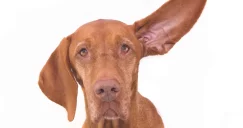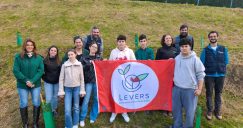Composting Workshop in Westport
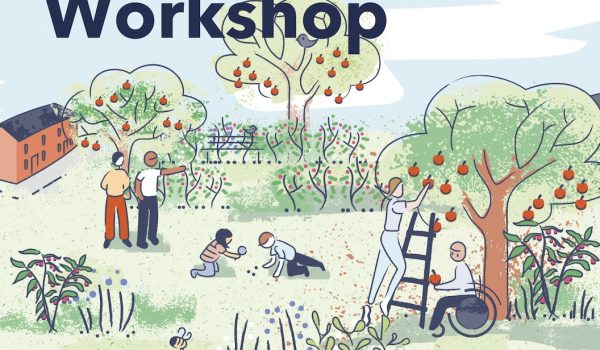
- Article, Event, Ireland, TYPE
Future Food Forests is an initiative in Westport, Co. Mayo that promotes a thriving wellbeing economy, nourished by local, healthy and sustainable food systems. As part of this initiative, a local community group are creating their own food forest.
Composting Workshop
Running alongside the development of the Food Forest are a series of workshops centered around food resilience and climate action. Food systems are vulnerable to natural, social, and institutional changes that come with a changing climate. They are also likely to highlight and magnify existing socioeconomic, and geographical inequalities. Creating resilient and community focused food systems is one way in which we can take climate action.
Learning how to compost properly will help residents in the establishment of the food forest as there will be space for compost and raised beds for growing vegetables. Learning how to compost in your own back garden also saves time, money and waste more generally.
Sharon Cameron from Mayo County Council hosted a composting workshop for horticulture class at Mayo College, students from Rice College Boys School and Sacred Heart Girls School and other interested members of the public at the Quay Community Centre on the 26th March.
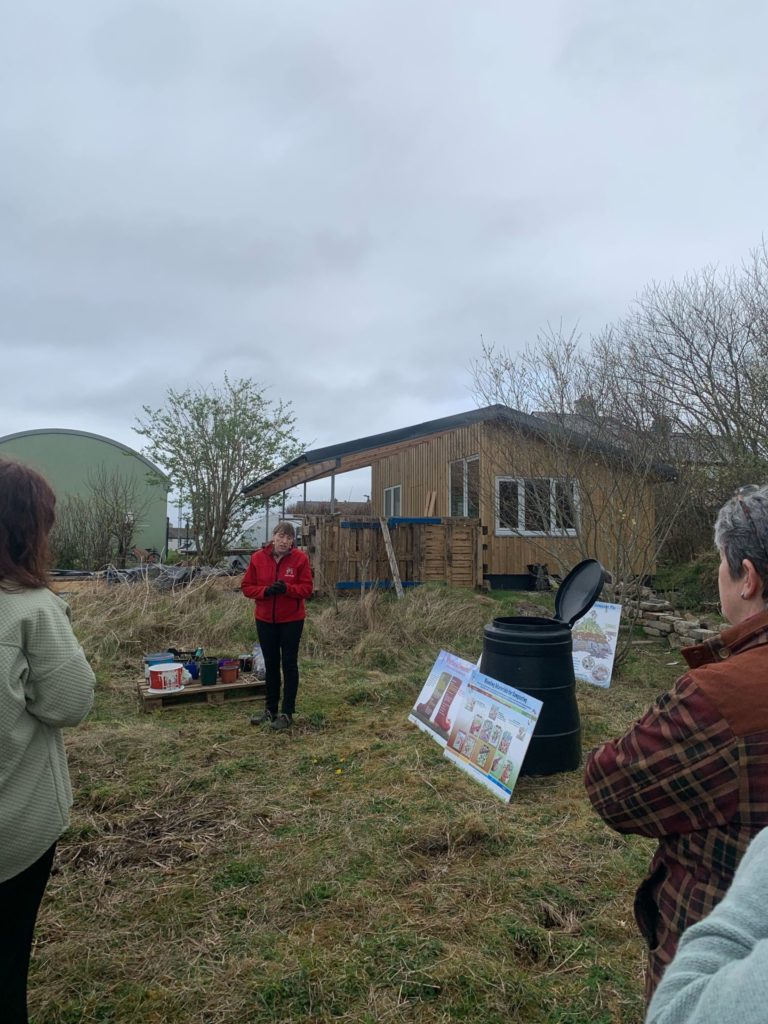
Sharon Cameron with composting bin
Composting is like outdoor baking – It’s all about the mixture!
Peat is just like another variety of flour
Sharon brought a composting bin to demonstrate and examples of different kinds of compost and soil which can be bought, found and made. She likened the process of composting to baking – “composting is like outdoor baking, it’s about the mixture, peat is just like another variety of flour”.
She got one of the students to place the ingredients which go into making compost in order from the richest in carbon to the poorest. This included things like sawdust, woodchip, straw/hay, grass. Sawdust is high in carbon and needs a lot of green added to it. But too much green and it becomes a slimy mess.
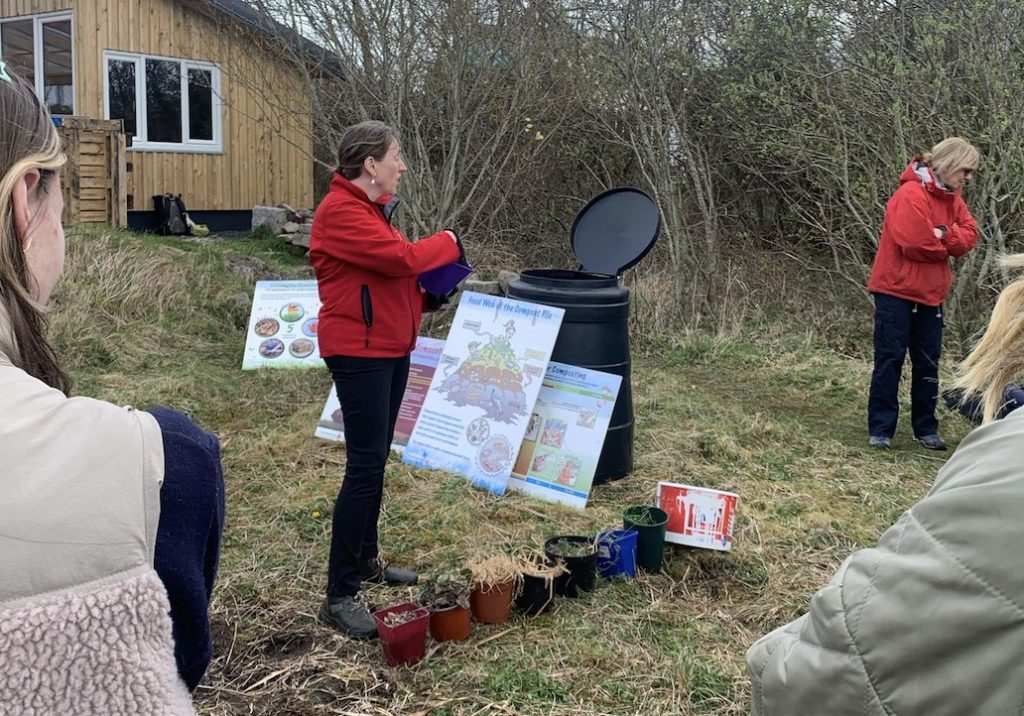
The order of carbon rich to carbon poor ingredients for composting
People came to see what they could learn about composting and apply it to their own garden. Sharon showed how the composting bin worked as a closed system and can keep rats and other vermin out of the bin.
One discussion point was “compostable” lids, coffee cups, supermarket bags. Sharon noted that these are a lesser evil compared to plastic coffee cups, but land is still being dedicated to creating packaging for something you will use for 20 minutes then throw away.
To learn more about composting or to book onto workshops or training in Ireland go to:





